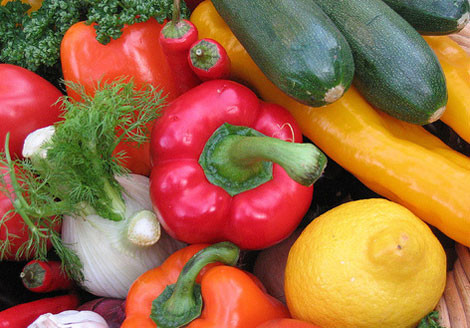 Storage of vegetables and fruits 1.«I heard that vegetables lose vitamins during storage. How to choose fresh, high-quality products in the store?»– Vegetables do lose some vitamins over time. Recently, American scientists from Columbia University presented some very interesting facts. It turned out that ascorbic acid is the most unstable vitamin. For example, it loses 40% of its ascorbic acid in six months. It is even worse with greens - almost half of the vitamin is lost in the first day of storage. Hence the conclusion: there is no point in buying wilted parsley or dill. It is also important to know how to choose other vegetables correctly. Firstly, preference should be given to those that are the least cleared of tops, leaves or stalks. For example, root vegetables should have remnants of green tails on the «top». The cabbage stalk should not be cut off at the head itself, but at least slightly raised above it. Cauliflower should not have large florets. They require longer cooking, which in turn takes away vitamins.
Storage of vegetables and fruits 1.«I heard that vegetables lose vitamins during storage. How to choose fresh, high-quality products in the store?»– Vegetables do lose some vitamins over time. Recently, American scientists from Columbia University presented some very interesting facts. It turned out that ascorbic acid is the most unstable vitamin. For example, it loses 40% of its ascorbic acid in six months. It is even worse with greens - almost half of the vitamin is lost in the first day of storage. Hence the conclusion: there is no point in buying wilted parsley or dill. It is also important to know how to choose other vegetables correctly. Firstly, preference should be given to those that are the least cleared of tops, leaves or stalks. For example, root vegetables should have remnants of green tails on the «top». The cabbage stalk should not be cut off at the head itself, but at least slightly raised above it. Cauliflower should not have large florets. They require longer cooking, which in turn takes away vitamins.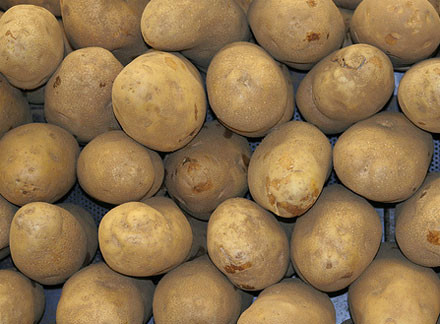 Potatoes deserve a separate discussion.It is better to buy it in small packages, and not in multi-kilogram bags. They have no ventilation, so the tubers in the center begin to rot quickly. In addition, such potatoes sprout faster, and this is already a clear health hazard. The fact is that sprouted potatoes have a high level of solanine. This is a harmful substance that negatively affects the liver and the entire gastrointestinal tract. In addition, American scientists suspect solanine of being carcinogenic. 2. "Sometimes there are green spots on potatoes. Are they dangerous to health? " Green tubers contain the maximum amount of solanine, they should be boiled only in the skin. If there are green spots, they should be removed. But not along the border of the greenery, but much deeper - cutting off a thick layer of healthy-looking pulp. Other vegetables, such as lettuce, also require some precautions. Its large leaves accumulate plant toxins, which give it a slightly bitter taste. If it does, the leaves need to be processed in a special way: remove the upper, rounded part of the leaf. Soak what is left for five minutes in a weak vinegar solution. After this, both the toxins and the bitterness will disappear. Recently, they have begun to talk about the dangers of fresh but overripe peas. Bacteria accumulate in their pods, which can cause intestinal upset. 3. «They say that different vegetables accumulate pesticides in different ways. In each case, they need to get rid of them in their own way. How to do this?»– If we talk about potatoes, most nitrates accumulate in small or large tubers. Therefore, it is better to choose medium-sized tubers. The eyes need to be removed, since they accumulate the maximum amount of pesticides. Their concentration in vegetables (in all, not just potatoes) depends on the time of harvesting. It is best to do this in the morning or evening. During this period, the nitrate content is minimal. This should be taken into account by those who grow vegetables in their garden. In carrots, the most nitrates accumulate in the "core". It is easily separated from the rest of the pulp, and therefore the problem of "chemicals" can be easily solved. You just need to remove the central part of the carrot, and use only the outer rim. Cabbage absorbs pesticides very easily. However, it is not difficult to get rid of them. To do this, you need to clean the head of cabbage from the upper leaves, and remove the fleshiest part of the rest - the one that is closer to the center. This is where most of the harmful substances accumulate. There are also a lot of them in the stalk. It is better not to eat it. In terms of its ability to accumulate chemicals, cabbage is second only to beets. The latter absorbs pesticides like a sponge. Therefore, the vegetable must be processed very carefully. Both boiled and raw beets must be peeled without skimping. The skin should be removed in a thick layer, because the maximum amount of harmful substances is deposited under the skin. The same can be said about the "top". It must be cut off, retreating from the tops at least one fifth of the size of the entire root crop.
Potatoes deserve a separate discussion.It is better to buy it in small packages, and not in multi-kilogram bags. They have no ventilation, so the tubers in the center begin to rot quickly. In addition, such potatoes sprout faster, and this is already a clear health hazard. The fact is that sprouted potatoes have a high level of solanine. This is a harmful substance that negatively affects the liver and the entire gastrointestinal tract. In addition, American scientists suspect solanine of being carcinogenic. 2. "Sometimes there are green spots on potatoes. Are they dangerous to health? " Green tubers contain the maximum amount of solanine, they should be boiled only in the skin. If there are green spots, they should be removed. But not along the border of the greenery, but much deeper - cutting off a thick layer of healthy-looking pulp. Other vegetables, such as lettuce, also require some precautions. Its large leaves accumulate plant toxins, which give it a slightly bitter taste. If it does, the leaves need to be processed in a special way: remove the upper, rounded part of the leaf. Soak what is left for five minutes in a weak vinegar solution. After this, both the toxins and the bitterness will disappear. Recently, they have begun to talk about the dangers of fresh but overripe peas. Bacteria accumulate in their pods, which can cause intestinal upset. 3. «They say that different vegetables accumulate pesticides in different ways. In each case, they need to get rid of them in their own way. How to do this?»– If we talk about potatoes, most nitrates accumulate in small or large tubers. Therefore, it is better to choose medium-sized tubers. The eyes need to be removed, since they accumulate the maximum amount of pesticides. Their concentration in vegetables (in all, not just potatoes) depends on the time of harvesting. It is best to do this in the morning or evening. During this period, the nitrate content is minimal. This should be taken into account by those who grow vegetables in their garden. In carrots, the most nitrates accumulate in the "core". It is easily separated from the rest of the pulp, and therefore the problem of "chemicals" can be easily solved. You just need to remove the central part of the carrot, and use only the outer rim. Cabbage absorbs pesticides very easily. However, it is not difficult to get rid of them. To do this, you need to clean the head of cabbage from the upper leaves, and remove the fleshiest part of the rest - the one that is closer to the center. This is where most of the harmful substances accumulate. There are also a lot of them in the stalk. It is better not to eat it. In terms of its ability to accumulate chemicals, cabbage is second only to beets. The latter absorbs pesticides like a sponge. Therefore, the vegetable must be processed very carefully. Both boiled and raw beets must be peeled without skimping. The skin should be removed in a thick layer, because the maximum amount of harmful substances is deposited under the skin. The same can be said about the "top". It must be cut off, retreating from the tops at least one fifth of the size of the entire root crop.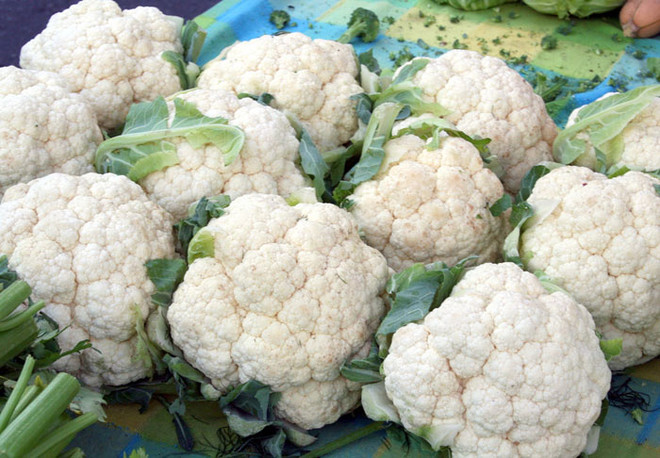
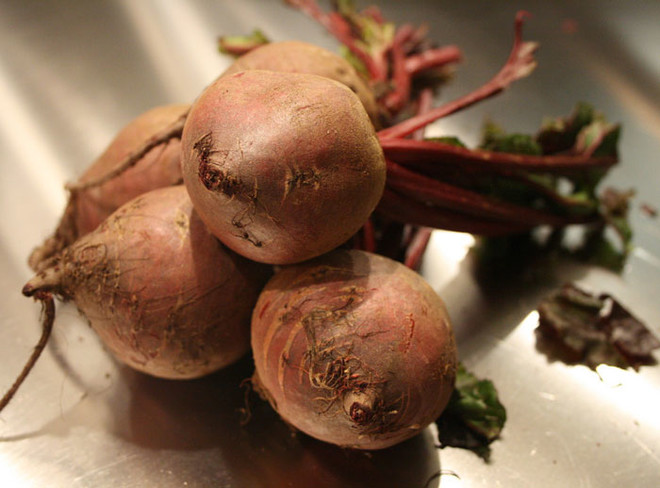
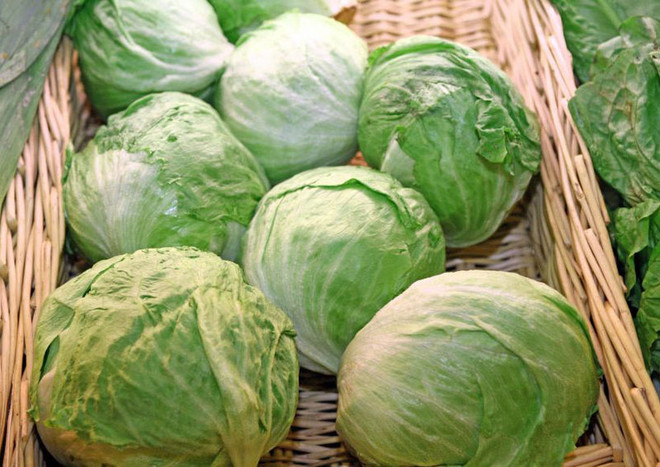 4.«I have intestinal problems, so I need to eat only boiled vegetables. But they contain practically no useful substances - no minerals, no vitamins. Is it possible to somehow prevent their loss?»– Heat treatment reduces the amount of almost all useful substances. The concentration of water-soluble vitamins decreases especially quickly. When boiling vegetables, they pass into the water. Vitamin C is especially guilty of this, which is very sensitive not only to temperature, but also to air. But there are several secrets that will help to preserve the usefulness of vegetables as much as possible when boiling. So, you need to:
4.«I have intestinal problems, so I need to eat only boiled vegetables. But they contain practically no useful substances - no minerals, no vitamins. Is it possible to somehow prevent their loss?»– Heat treatment reduces the amount of almost all useful substances. The concentration of water-soluble vitamins decreases especially quickly. When boiling vegetables, they pass into the water. Vitamin C is especially guilty of this, which is very sensitive not only to temperature, but also to air. But there are several secrets that will help to preserve the usefulness of vegetables as much as possible when boiling. So, you need to:
- Boil the vegetables in a saucepan with a tight-fitting lid that blocks the access of air.
- Raise the lid as seldom as possible. Otherwise, more and more new portions of oxygen will flow into the pan. This significantly reduces the concentration of vitamins, especially ascorbic acid.
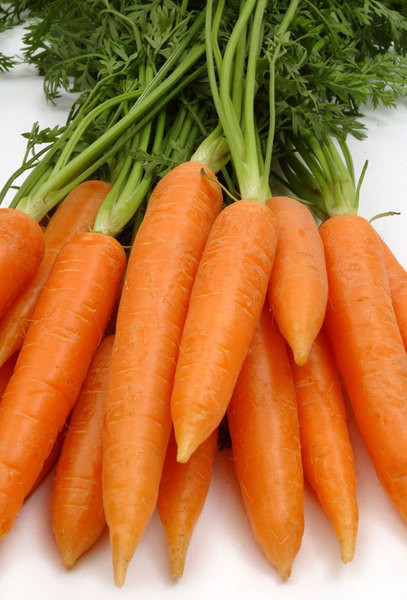
- When buying dishes choose the cover of a dark color. Since light destroys some vitamins, in particular the precursor of vitamin A.
- Don't poke vegetables with a knife to check if they're done. It leaves "wounds" that wash out vitamins.
- Do not leave the vegetables in the broth, and pour it immediately after cooking.
- Do not soak peeled vegetables in cold water. When preparing the potatoes and carrots should be covered with a damp cotton cloth. When all the roots are cleaned, they need to be put in a pan and immediately put on the fire.
- It is better not to peel vegetables before cooking. It is preferable to boil them in their skins, which preserve vitamins. Root vegetables should be peeled immediately before cooking.
- Cook vegetables whole, not in pieces. Otherwise, vitamin losses will increase by 15-20%. In the case of vitamin C, this figure can be 30%.
- Put vegetables in boiling water or in a preheated oven. This measure reduces cooking time, therefore, helps to preserve vitamins.
- Add salt to the water as late as possible. Salt helps to "draw" water-soluble vitamins from vegetables.
5. «I read that you need to add lemon to the water in which you cook vegetables. It will help preserve the vitamins. Is that true?» "Vitamin C" is an acid.It quickly breaks down in an alkaline environment. That is why hard water promotes the loss of ascorbic acid. But it is best preserved in an acidic environment. Therefore, when boiling vegetables, you can really add a few drops of lemon juice or a little vinegar to the water. This will preserve not only vitamin C, but also the color of vegetables - for example, carrots and beets. Fats preserve the maximum amount of vitamins A and E. Therefore, red-yellow vegetables can be cooked in milk or whey. Both can then be used to make soups or sauces.
"Vitamin C" is an acid.It quickly breaks down in an alkaline environment. That is why hard water promotes the loss of ascorbic acid. But it is best preserved in an acidic environment. Therefore, when boiling vegetables, you can really add a few drops of lemon juice or a little vinegar to the water. This will preserve not only vitamin C, but also the color of vegetables - for example, carrots and beets. Fats preserve the maximum amount of vitamins A and E. Therefore, red-yellow vegetables can be cooked in milk or whey. Both can then be used to make soups or sauces.









